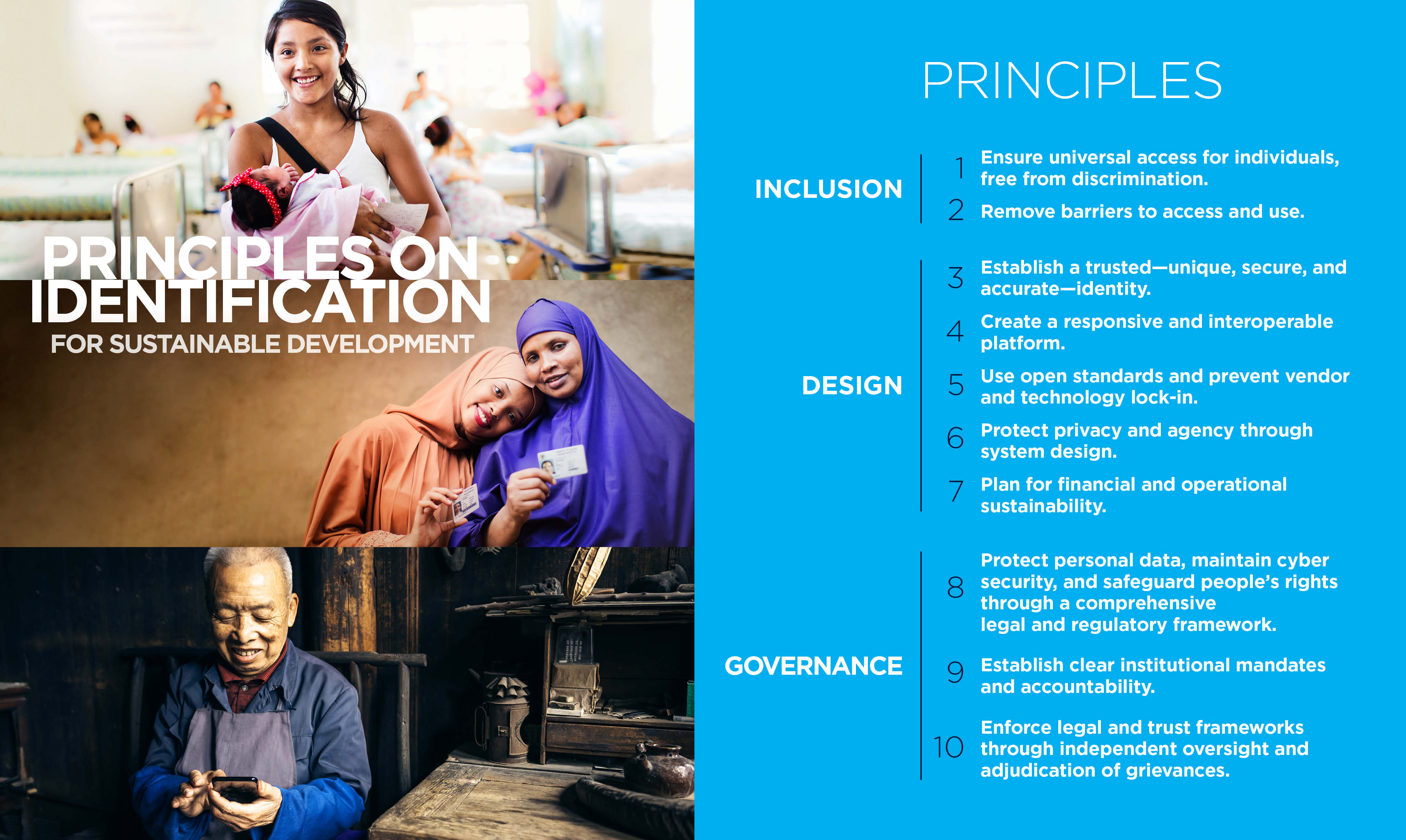Principles on Identification for Sustainable Development: 2021 Update
Building on existing international norms, the Principles were first developed and published in 2017 by a group of organizations committed to supporting the development of identification systems that are inclusive, trusted, accountable, and used to enhance people’s lives and the achievement of the Sustainable Development Goals (SDGs). Given the quickly evolving nature of the identification sector, the original signatories to the Principles committed to revisiting them to incorporate new perspectives and lessons learned. This second edition released in 2021 reflects inputs from this process and broader public consultations.
Principles are available in English, Spanish, French, Arabic, and Portuguese.
The Philippines’ response to COVID-19, notably the effective targeting of beneficiaries for emergency social assistance, was hampered by the lack of a digital ID system to uniquely identify and verify Filipinos and bank accounts to deliver funds digitally. The Philippine Identification System (PhilSys) began COVID-safe registration in October 2020, targeting the registration of 70 million people in 2021 (about two-thirds of the population). The Bank has supported a comprehensive, cross sectoral technical assistance program on Philippines digital ID since 2017, leading to the adoption of best practices for inclusion, privacy and impact.
For more, check out our latest feature story: "Safely launching the Philippines’ digital ID system during COVID-19."
Latest Blogs
- 10 principles for good ID: A 2021 refresh
- Digital ID systems can help vaccination deployment, but should never be a barrier to access
- Digital technologies can support countries to face the scale and complexity of COVID-19 vaccine delivery
- National ID in Lesotho is putting citizens at the center
Civil Registration and Vital Statistics Systems eLearning Course
The first comprehensive CRVS eLearning course was launched in May 2017. In recognition of the importance of universal registration for sustainable development, the course was developed to provide an in-depth insight into the core elements to ensure universal registration of all vital events, and timely production of vital statistics for public sector planning purposes. The initiative was a collaboration between the Global CRVS Group, the World Bank Group Open Learning Campus and the Korea Ministry of Strategy and Finance. The World Bank's ID4D initiative has supported the course since it started.
As of December 2020, over 4,400 learners from 137 countries from all regions had enrolled in the course with majority from Sub-Saharan Africa and East Asia and the Pacific. On March 29th, the 10th facilitated course commenced. Additional information can be found at https://olc.worldbank.org/content/civil-registration-and-vital-statistics-systems-advanced-level-facilitated

